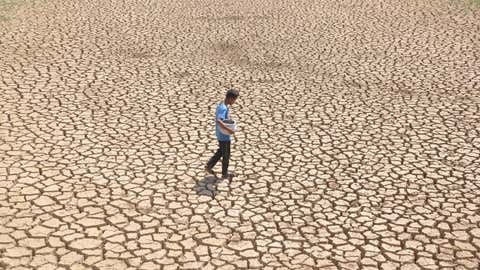At least 36.1 million people in the Horn of Africa, including 24.1 million in Ethiopia, 7.8 million in Somalia, and 4.2 million in Kenya, will be affected by severe drought in October, the United Nations has warned.

The UN Office for the Coordination of Humanitarian Affairs (OCHA) said the figure represented a significant increase from July when an estimated 19.4 million people were affected by drought, Xinhua news agency reported.
OCHA said aid agencies are already in a race against time and are working around the clock to respond to this rapidly deepening emergency.
“Urgent additional funding is required to scale up and sustain the response,” OCHA said in its latest humanitarian update on drought released on Wednesday evening.
It said communities in the Horn of Africa are facing the immediate threat of starvation, with forecasts indicating that the October-December rainy season is likely to underperform, marking the fifth consecutive failed season in parts of Ethiopia, Kenya and Somalia.
According to OCHA, two districts in Somalia are at imminent risk of famine, and at least 21 million people are projected to face high levels of acute food insecurity due to drought in Ethiopia, Kenya and Somalia between October and December.
“The 2020-2022 drought has now surpassed the horrific droughts in 2010-2011 and 2016-2017 in both duration and severity and will continue to deepen in the months ahead, with catastrophic consequences,” OCHA said.
It said food prices are spiking in many drought-affected areas, due to a combination of macroeconomic challenges, below-average harvests, and rising prices for food and fuel on international markets, including as a result of the Ukraine-Russia conflict.
In Somalia, staple food prices in drought-hit areas have surpassed the levels recorded during the 2017 drought and the 2011 famine, according to World Food Program (WFP)’s price monitoring.
In Ethiopia, the cost of the local food basket increased by more than 33 per cent between January and June 2022, according to WFP.
Soaring prices leave families unable to afford even basic items and force them to sell their hard-earned properties and assets in exchange for food and other life-saving items.
There are also repercussions for food for refugee programs, which are already impacted by reduced rations due to a lack of funding support.
Source: weather.com

Leave a Reply